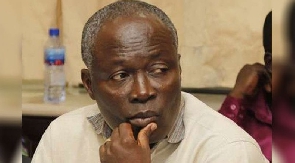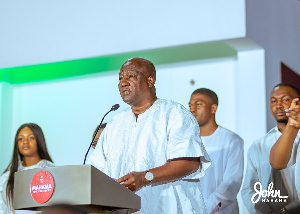Participants at the just-ended in-country training workshop on the implementation of ECOWAS Free Movement Protocol (EFMP) have advocated for mainstreaming of the Protocol into West African countries’ development agenda.
That, they said, would facilitate the implementation of the protocols to enhance movement of citizens across the Sub-region in addition to having synergy to realise the goals of the Protocol.
The training workshop, the second in the series, is to promote intra-regional mobility within the ECOWAS region to help address the challenges encountered in the full implementation of the EFMP, with particular reference to Ghana and Sierra Leone.
It also seeks to enhance participants’ understanding of the patterns and challenges of intra-regional migration; increase their knowledge on the obstacles to implementing the Free Movement Protocol in Ghana as well as to equip them with skills to address the challenges associated with its implementation.
The two-day workshop was organised by the Migration and Development West Africa Project (MADE West Africa), in collaboration with the International Migration Commission, with funding from the European Union.
It was attended by 15 high ranking and middle-level officials selected from Ghana Immigration Service, Ghana Revenue Authority - Customs Division, Labour Department, the media, universities, civil society groups, and migrants associations.
Professor Mariama Awumbila, the MADE West Africa Project Coordinator, said intra-regional migration in West Africa remained an untapped resource for development.
That sector was a huge potential resource and if managed well could boost the economic development in the Sub-region, she said.
She noted that “about 72 per cent of African migration takes place in Africa, and it is both intra-regional and inter-regional; and the routes are constantly evolving and changing with Europe being a major destination of African migrants”.
A study, she said, revealed that intra-regional labour migration flows were still dominant by the north-south movement from countries of Sahel West Africa to the mineral and plantation-rich coastal countries.
Prof. Awumbila, therefore, stressed the need for governments to collaborate with receiving countries to put structures in place to enable migrants to save their income in their countries of origin to boost economic development.
She called on civil society organisations to embark on sensitisation programmes for migrants before they left the shores of a country to limit the numerous challenges they faced during their journey.
She said similar training workshops, she said, would be organised in Sierra Leone in due course.
Professor Joseph K. Teye, the Director of the Centre for Migration Studies, University of Ghana, Legon, presenting key findings on a MADE Study Report on challenges to the implementation of the Free Movement Protocol, said the future of migration patterns within ECOWAS would largely depend on the political will of member states to cooperate, share labour migration data, and effectively implement labour migration policies and protocols in the sub-region.
He mentioned contradictions between ECOWAS protocol and national laws, harassment of migrants at borders, low level knowledge about ECOWAS protocol, misunderstanding of patterns of intra-regional migration and fears of competition, security and health concerns and lack of data and labour market information as major hindrances to the implementation of the Protocol.
Prof. Teye noted that economic challenges and political instability citizens faced created anti-migrant sentiments that made states reluctant to implementing the Protocols, adding that; “The economic problems are usually blamed on immigrants rather than the root cause of corruption and mismanagement.”
On contradictions, he cited Ghana’s Investment Act, 2013 (865), which prohibits migrants from engaging in petty trading, operation of taxis, beauty salons or barbering shops, printing of recharge cards for subscribers of telecommunication services, production of exercise books, supply of retail sachet water and retail of finished pharmaceutical products as examples.
Prof Teye said that national legislative instrument contradicted provisions in the Protocol, which sought to suggest that citizens of ECOWAS member states should be treated equally.
He, however, said though ECOWAS had made progress in the area of harmonization of travel documents, especially with regards to adoption of and the use of the ECOWAS passport, and the harmonised Immigration and Emigration Form of ECOWAS member states, there were still gaps in the harmonisation of procedures of admission and travel documents.
Click to view details



General News of Friday, 14 June 2019
Source: ghananewsagency.org

















